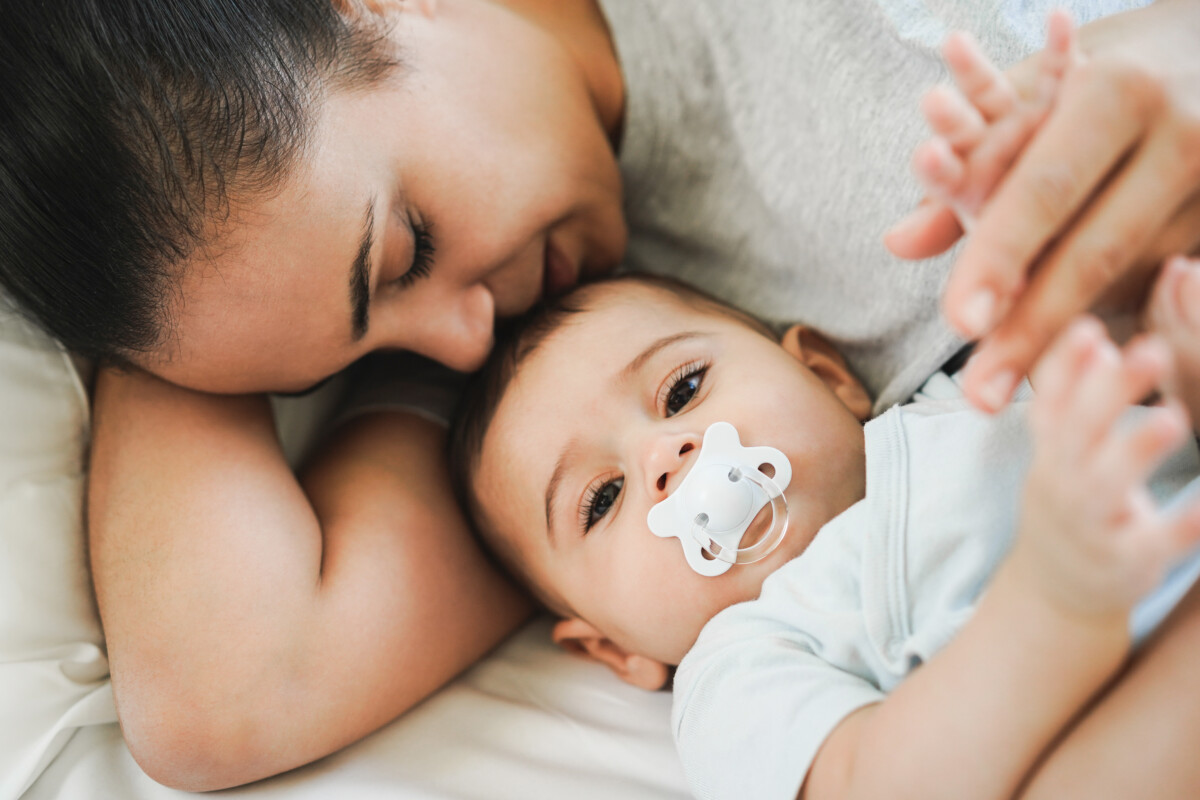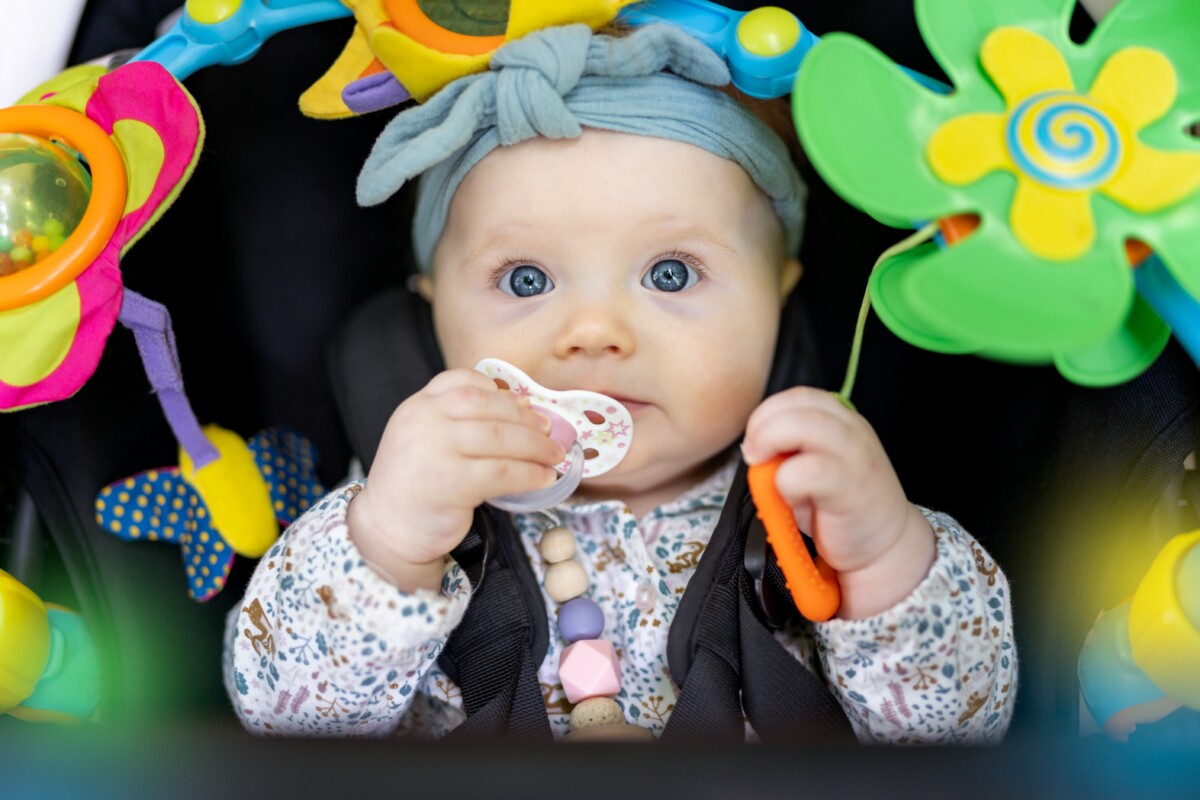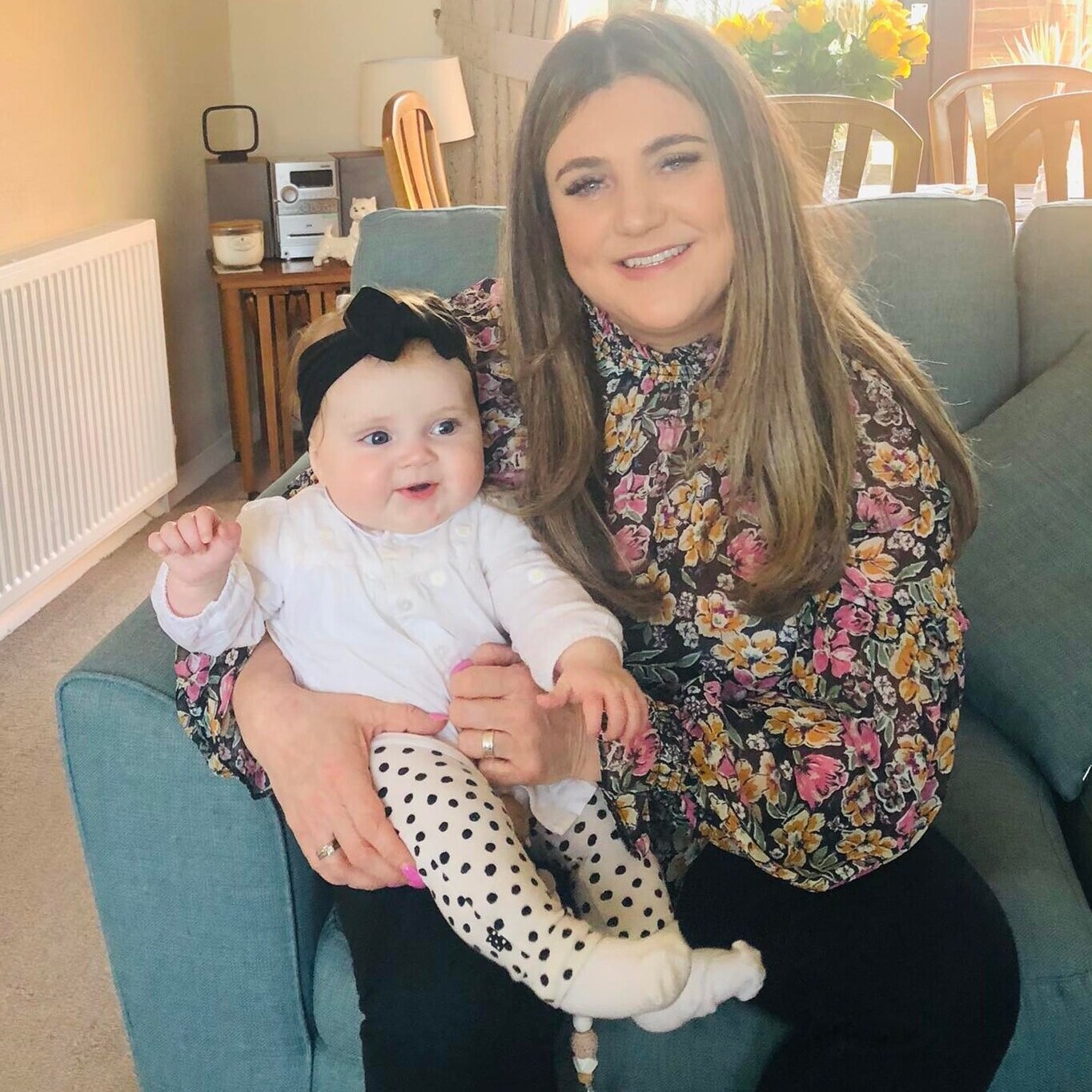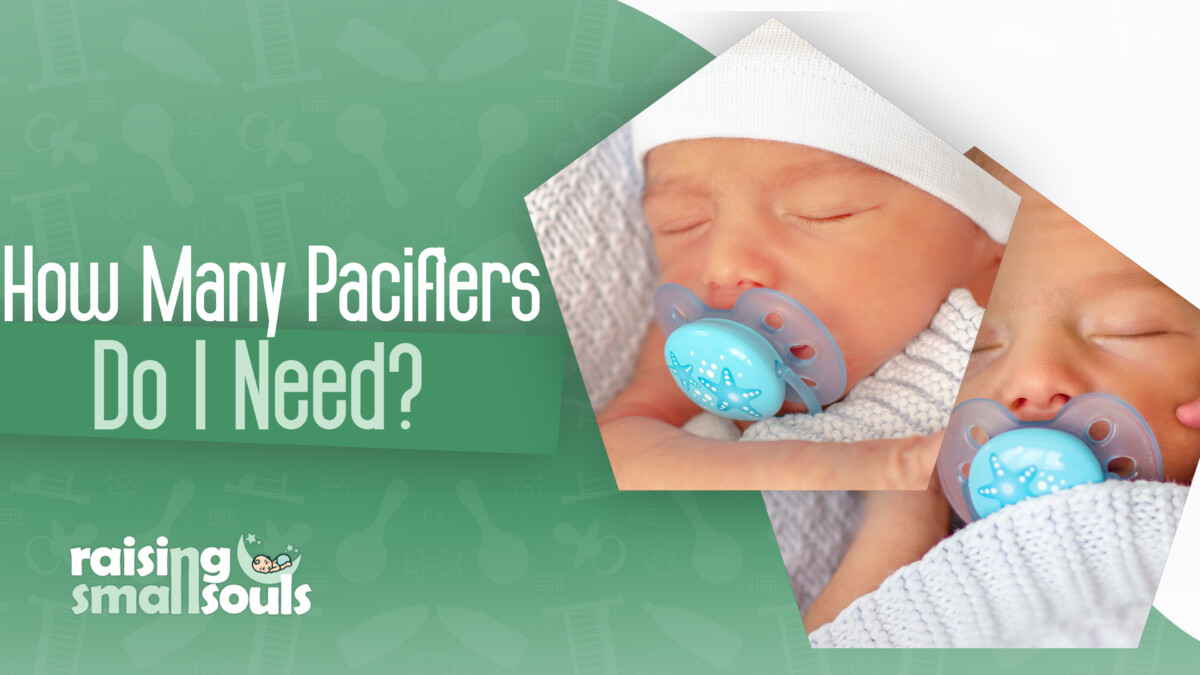A pacifier for your baby is always one of the first items if you are waiting for a baby to come, and it should be on your list.
Yet again, most parents say that only one pacifier is never enough and you should always have reserves. However, how many pacifiers do you need for your baby?
This article aims to tell the exact number of pacifiers the parents need to buy for their newborn child!
Main Points
- Pacifiers are some important items for babies and you should never leave them without one in their mouth, of course, if they like it.
- The exact number of pacifiers you may need is three of them! Each one of them will be there when the other isn’t!
- Pacifiers are known to be big helpers for babies, and they have many benefits.
- Important: The main benefit of a pacifier is that it can help your baby avoid SIDS. A syndrome related to breathing problems for infants.
- There are a few things you need to check out when choosing the right pacifier for your baby.
- It is better if you avoid using scented pacifiers. Scent pacifiers can soothe babies but unscented ones do the job properly too!
What Is The Exact Number of Pacifiers My Baby Needs?

Having three pacifiers around the room for your baby is an excellent amount because you should have in mind that one can get lost, one can get dirty, and one can stay around your baby.
Yet again, if your baby has started walking around, you may want to know that they lose things quite quickly, and having one hidden in the diaper bag you use can be a great idea too.
Make sure you also check out this amazing list of the finest pacifiers for tongue ties.
Benefits of Using Pacifiers
The pacifiers a parent needs to buy were three in number but I want to share with you something else: the benefits that using a pacifier may bring to your baby.
Helps on Breastfeeding
Pacifiers do a perfect job when it comes to babies that are breastfeeding. It opens a whole new horizon for them and a good pacifier helps the baby make the movements he or she needs to do related to breastfeeding. It surely makes breastfeeding better.
Comfort
When a baby isn’t feeling too comfortable during the day or night, just put a pacifier in their mouth. You will notice that they will calm down immediately and start sucking it.
Teeth
When it comes the time of teeth, the inner part of your baby will always be itching and interestingly enough some moms, including me, have found that a pacifier truly helps in this part!
SIDS
My aim is not to scare you but you have probably heard about SIDS syndrome which translates to Sudden Infant Death Syndrome and it is most popular during the night.
So, when your baby is sleeping, make sure to give them a pacifier so that they can move it around their mouth and breathe normally, which extremely reduces the chances of this syndrome.
Sleep Well
A pacifier will always help your baby sleep better! I am not saying that it will improve the quality of sleep your baby is taking, but it surely will help them sleep faster and more peacefully.
Make sure you also read a blog that explains if you need a baby monitor.
Choosing the Right Pacifier for Your Baby

Choosing a pacifier for your baby isn’t too hard, but still, there are a few things you may want to have in mind. So, consider this part as a buying guide!
When choosing a pacifier you should have in mind the design, shape, material, ventilation, and whether there are any scents added.
Design
The design of a pacifier doesn’t tell whether it looks pretty or not, when I say design, I mean that you should choose a pacifier with an orthodontic design and that’s because these pacifiers will fit perfectly in your baby’s mouth without having to damage any gum or little teeth.
Shape
The shape of a pacifier should always be similar to a mom’s breast! You should always consider it because many babies don’t even use it if it’s not similar.
Also, when the shape is similar, it can help in the nursing part.
Material
The market owns many different pacifiers but not all of them are made with the same material. When choosing a pacifier always have in mind to choose silicone.
Silicone pacifiers don’t change shape easily as some others do!
Ventilation
The small holes in a pacifier are not only so! They are made to bring air to a baby because if not, there are many damages that can be caused. That’s why, when choosing a pacifier for your baby, you should always have in mind to have ventilation in there so your baby can breathe freely.
Scents
Pacifiers with scents are the ones you should avoid! Some pacifiers include vanilla scents because vanilla works for soothing but I have never used any of them for my babies and I wouldn’t recommend them.
Natural pacifiers without a scent on them can easily soothe your baby too! You don’t need scented pacifiers.
Make sure you also check out this amazing list of the finest cases for pacifiers.
Final Words
As I mentioned in the article, pacifiers are some of the most needed items many people or parents worry about, and write them as the first thing on the list! Pacifiers are indeed some of the things your babies need but they surely don’t need fifty of them!
How many pacifiers do I need? If you read carefully the article above, you will find out that the number three is the perfect number for them. You don’t need any more pacifiers unless you travel a lot. If you do so, you can put some of them in the traveling bag or your diaper bag.
What is important is to never leave your baby without one!
I really hope that you liked what you read thus far, and I hope that now you know how many pacifiers you need for your babies.

I am a stay-at-home mom of a wonderful son. I write on this blog as a hobby to help fellow mothers in their parental journey 🙂

